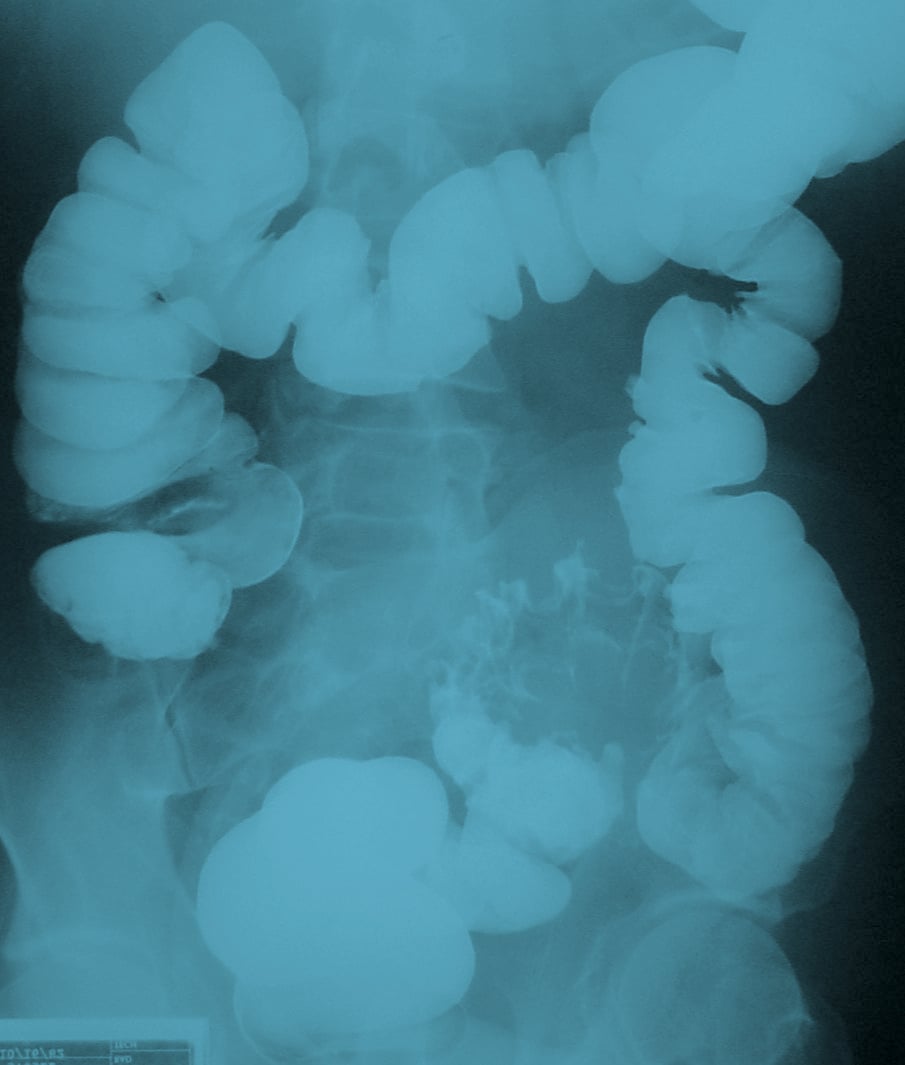
Issue 066
September 2010
How do I know if I’ve got it?
Symptoms include constipation or diarrhoea, and abdominal pain or cramping, especially on the left side of the body. There may also be fever or nausea.
What is it?
In some people, small weaknesses (known as diverticula) can form on the walls of the large intestine. Occasionally these diverticula may become inflamed and painful, usually due to infection. This is known as diverticulitis.
If untreated, there can be obstruction of the bowel, plus damage to – and even rupture of – the intestine walls, which can lead to feces leaking into the abdomen. That, in turn, is almost certain to cause life-threatening infection.
How does it happen?
Exactly what causes diverticulitis isn’t known, but doctors are aware of some risk factors. A low fiber diet lacking in fruit and vegetables is associated with the formation of diverticula. Obesity, increased age, and lack of exercise are also considered to increase the risk.
There’s been a lot of speculation in the MMA media as to whether steroid use can cause, or conversely delay, diagnosis of diverticulitis. This is due to the confusion between anabolic steroids of the kind sometimes illegally used by athletes to improve their performance, and other very different types of steroid medication prescribed by doctors to treat illness and inflammation. To clarify, there doesn’t appear to be any evidence that performance enhancing anabolic steroids are associated with diverticulitis.

Who’s had it?
Brock Lesnar was forced to withdraw from his scheduled bout with Shane Carwin at UFC 106 due to illness. It was reported that he was suffering from mononucleosis, but later it was announced that he was suffering from a severe case of diverticulitis and required surgery to repair damage to his large intestine. At the time it appeared that it might be the end of Lesnar’s MMA career. He has since made a full recovery and at UFC 116 submitted the previously undefeated Carwin by arm triangle in the second round.
Treatment
Medical advice should be sought as early as possible! Mild cases of diverticulitis may be treated with antibiotics, intravenous fluids and/or changes in diet. If it’s treated quickly, there is likely to be less damage, fewer complications and a much faster recovery. Once the infection has caused damage to the bowel wall then surgery may be needed.
How long can a fighter expect to be out for?
This depends on the severity of the illness. At best, you may be out of hard training for a few weeks to a month. In severe cases it can be career ending.
What problems can it cause?
Around 30% of people who don’t receive surgery for diverticulitis will go on to have another episode, but most will not. The most severe cases may require major surgery that leaves the patient without a functioning bowel and needing to use a colostomy bag, or even prove fatal. Fortunately, this is rare.
...









